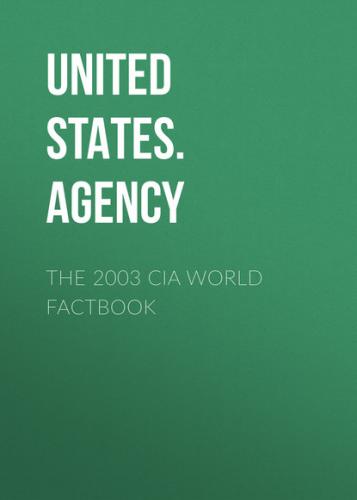Country name:
conventional long form: Republic of Ghana
conventional short form: Ghana
former: Gold Coast
Government type:
constitutional democracy
Capital:
Accra
Administrative divisions:
10 regions; Ashanti, Brong-Ahafo, Central, Eastern, Greater Accra,
Northern, Upper East, Upper West, Volta, Western
Independence:
6 March 1957 (from UK)
National holiday:
Independence Day, 6 March (1957)
Constitution:
approved 28 April 1992
Legal system:
based on English common law and customary law; has not accepted
compulsory ICJ jurisdiction
Suffrage:
18 years of age; universal
Executive branch:
chief of state: President John Agyekum KUFUOR (since 7 January
2001); Vice President Alhaji Aliu MAHAMA (since 7 January 2001);
note - the president is both the chief of state and head of
government
head of government: President John Agyekum KUFUOR (since 7 January
2001); Vice President Alhaji Aliu MAHAMA (since 7 January 2001);
note - the president is both the chief of state and head of
government
cabinet: Council of Ministers; president nominates members subject
to approval by Parliament
elections: president and vice president elected on the same ticket
by popular vote for four-year terms; election last held 7 and 28
December 2000 (next to be held NA December 2004)
election results: John Agyekum KUFUOR elected president in runoff
election; percent of vote - John KUFUOR 56.4%, John Atta MILLS 43.6%
Legislative branch:
unicameral Parliament (200 seats; members are elected by direct,
popular vote to serve four-year terms)
elections: last held 7 December 2000 (next to be held NA December
2004)
election results: percent of vote by party - NA%; seats by party -
NPP 100, NDC 92, PNC 3, CPP 1, independents 4
Judicial branch:
Supreme Court
Political parties and leaders:
Convention People's Party or CPP [Nii Noi DOWUONA, general
secretary]; Every Ghanaian Living Everywhere or EGLE [Owuraku AMOFA,
chairman]; Great Consolidated Popular Party or GCPP [Dan LARTY];
National Convention Party or NCP [Sarpong KUMA-KUMA]; National
Democratic Congress or NDC [Dr. Huudu YAHAYA, general secretary];
New Patriotic Party or NPP [Samuel Arthur ODOI-SYKES]; People's
Convention Party or PCP [P. K. DONKOH-AYIFI, acting chairman];
People's Heritage Party or PHP [Emmanuel Alexander ERSKINE];
People's National Convention or PNC [Edward MAHAMA]; Reform Party
[Kyeretwie OPUKU, general secretary]
Political pressure groups and leaders:
NA
International organization participation:
ABEDA, ACP, AfDB, C, ECA, ECOWAS, FAO, G-24, G-77, IAEA, IBRD,
ICAO, ICC, ICCt, ICFTU, ICRM, IDA, IFAD, IFC, IFRCS, ILO, IMF, IMO,
Interpol, IOC, IOM (observer), ISO, ITU, MINURSO, MONUC, NAM, OAS
(observer), OAU, OPCW, UN, UNAMSIL, UNCTAD, UNESCO, UNIDO, UNIFIL,
UNIKOM, UNITAR, UNMEE, UNMIBH, UNMIK, UNMOP, UNMOT, UNU, UPU, WCL,
WCO, WFTU, WHO, WIPO, WMO, WToO, WTrO
Diplomatic representation in the US:
chief of mission: Ambassador Alan J. KYEREMATEN
consulate(s) general: New York
FAX: [1] (202) 686–4527
telephone: [1] (202) 686–4520
chancery: 3512 International Drive NW, Washington, DC 20008
Diplomatic representation from the US:
chief of mission: Ambassador Mary Carlin YATES
embassy: 6th and 10th Lanes, 798/1 Osu, Accra
mailing address: P. O. Box 194, Accra
telephone: [233] (21) 775–347, 775–348
FAX: [233] (21) 701–813
Flag description:
three equal horizontal bands of red (top), yellow, and green with a
large black five-pointed star centered in the yellow band; uses the
popular pan-African colors of Ethiopia; similar to the flag of
Bolivia, which has a coat of arms centered in the yellow band
Economy Ghana
Economy - overview:
Well endowed with natural resources, Ghana has roughly twice the
per capita output of the poorer countries in West Africa. Even so,
Ghana remains heavily dependent on international financial and
technical assistance. Gold, timber, and cocoa production are major
sources of foreign exchange. The domestic economy continues to
revolve around subsistence agriculture, which accounts for 36% of
GDP and employs 60% of the work force, mainly small landholders.
Ghana opted for debt relief under the Heavily Indebted Poor Country
(HIPC) program in 2002. Policy priorities include tighter monetary
and fiscal policies, accelerated privatization, and improvement of
social services.
GDP:
purchasing power parity - $41.25 billion (2002 est.)
GDP - real growth rate:
4.5% (2002 est.)
GDP - per capita:
purchasing power parity - $2,000 (2002 est.)
GDP - composition by sector: agriculture: 36% industry: 25% services: 39% (2000 est.)
Population below poverty line: 31.4% (1992 est.)
Household income or consumption by percentage share: lowest 10%: 2.2% highest 10%: 30.1% (1999)
Distribution of family income - Gini index:
40.7 (1999)
Inflation rate (consumer prices):
14.5% (2002 est.)
Labor force:
9 million (2000 est.)
Labor force - by occupation:
agriculture 60%, industry 15%, services 25% (1999 est.)
Unemployment
